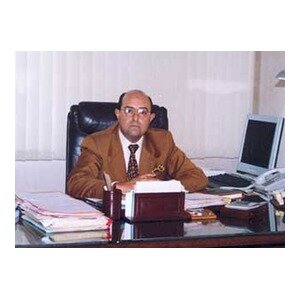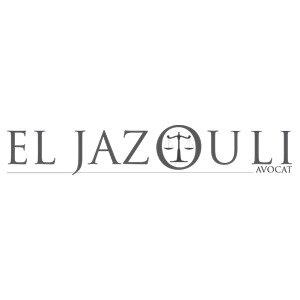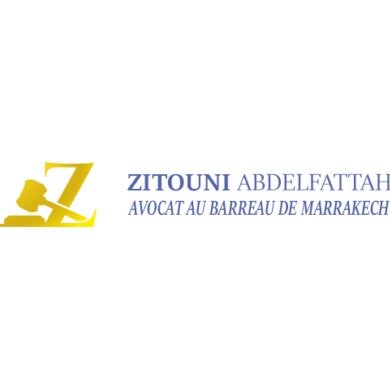Best Restructuring & Insolvency Lawyers in Marrakesh
Share your needs with us, get contacted by law firms.
Free. Takes 2 min.
List of the best lawyers in Marrakesh, Morocco
About Restructuring & Insolvency Law in Marrakesh, Morocco
Restructuring and insolvency law in Marrakesh, Morocco, is a specialized area designed to resolve financial difficulties faced by individuals, companies, or other entities. When businesses or individuals are unable to meet their financial commitments, these laws provide structured solutions either through debt rearrangement, corporate restructuring, or the formal insolvency process. The law aims to balance the interests of debtors and creditors, promote economic stability, and preserve as much value as possible for all parties involved. Marrakesh, as one of Morocco’s economic hubs, has a growing need for effective restructuring and insolvency solutions in line with local regulations and business practices.
Why You May Need a Lawyer
People often require legal assistance with restructuring and insolvency issues for several reasons, including:
- Facing overwhelming personal or business debt and needing to understand available legal options
- Being approached by creditors or threatened with legal action over unpaid debts
- Owning a business in financial distress and seeking to continue operations through restructuring
- Participating in negotiations or disputes with creditors regarding payment terms
- Requiring advice on formal liquidation or bankruptcy processes
- Desiring to safeguard personal or shareholder interests in a company facing insolvency
- Needing help to comply with Moroccan legal procedures and documentation requirements
A qualified restructuring and insolvency lawyer will help you understand your rights and obligations, guide you through negotiations, prepare required legal documents, and represent your interests during proceedings.
Local Laws Overview
Moroccan insolvency and restructuring laws are governed under the Commercial Code, especially Book V, which addresses companies' difficulties and collective proceedings. The legal framework covers procedures for preventive settlements, judicial administration, and judicial liquidation, each tailored for different levels of financial distress.
Key aspects of the local legal landscape in Marrakesh include:
- Prevention of insolvency through early intervention measures and debt restructuring negotiations
- Formal court procedures for companies unable to pay debts, known as "redressement judiciaire" (judicial reorganization) and "liquidation judiciaire" (judicial liquidation)
- Appointment of a trustee, typically an insolvency professional, to supervise or manage the debtor’s affairs
- Possibility of debt moratoriums, asset sales, and restructuring plans sanctioned by the court
- Rights and priorities of creditors, including secured versus unsecured creditors
- Obligations of company directors to act in the best interests of creditors in times of financial distress
- Legal safeguards for employees, suppliers, and other stakeholders during insolvency
These processes aim to maximize the chances of business survival or, where that is not possible, to ensure an orderly winding-up while protecting creditors' rights within the Moroccan legal context.
Frequently Asked Questions
What is the difference between restructuring and insolvency?
Restructuring refers to processes that help a financially troubled business reorganize its debts and operations to improve its financial position. Insolvency is the state where a person or company is unable to pay debts as they fall due, potentially leading to formal legal proceedings.
When should I consider insolvency proceedings in Marrakesh?
You should consider insolvency proceedings when you or your business can no longer meet financial obligations and informal negotiations with creditors have failed. Early intervention increases the likelihood of a positive outcome.
Who can start insolvency proceedings in Marrakesh?
Insolvency proceedings can be initiated by the debtor, creditors, or sometimes by the public prosecutor. In practice, most cases are started by debtor companies or entities unable to pay their debts.
What happens to employees during insolvency?
Employees are given special protection under Moroccan law. Wages and related employee claims have priority and are typically paid before other unsecured creditors during insolvency or liquidation.
Does insolvency always mean the business will close?
No, not always. Judicial reorganization aims to help businesses recover and continue operations through debt restructuring or operational changes, provided the restructuring plan is approved by the court and creditors.
Can personal assets be affected in business insolvency?
If you are a sole trader or have given personal guarantees, your personal assets may be at risk. In limited liability companies, owners' personal assets are generally protected as long as there is no evidence of wrongful conduct.
How are creditors paid during insolvency?
Creditors are paid according to a legal priority order set by Moroccan law. Secured creditors generally have priority, followed by employees, tax authorities, and unsecured creditors. Distributions occur from any recovered or liquidated assets.
What role does the court play in insolvency cases?
The Commercial Court in Marrakesh oversees all insolvency and restructuring cases. It approves proceedings, appoints managers or trustees, supervises plans, and ensures the process is fair and legal.
Can foreign creditors participate in Moroccan insolvency proceedings?
Yes, foreign creditors with legitimate claims can participate in insolvency proceedings in Morocco, provided they follow local procedures and submit their claims within the deadlines set by the court.
Is legal representation mandatory in insolvency cases?
While not always mandatory, legal representation is highly recommended due to the complexity of proceedings, documentation, and negotiations with creditors or the court.
Additional Resources
Individuals and businesses facing restructuring or insolvency challenges in Marrakesh may find assistance from the following resources:
- Commercial Court of Marrakesh - Supervises all insolvency and restructuring cases
- Moroccan Bar Association (Ordre des Avocats) - Provides listings of qualified insolvency lawyers
- Ministry of Justice (Ministère de la Justice) - Offers information on legal rights and procedures
- Chamber of Commerce, Industry, and Services of Marrakesh-Safi - Support for business owners
- Licensed insolvency practitioners and financial consultants specializing in business restructuring
Next Steps
If you are considering restructuring or facing insolvency in Marrakesh, Morocco, it is important to act quickly and seek professional guidance. Start by gathering all relevant financial documents and records related to your debts and obligations. Consult with a qualified restructuring and insolvency lawyer who can assess your situation, explain your options, and help you navigate the appropriate procedures in line with Moroccan law. Early legal intervention can increase the likelihood of protecting your assets, preserving your business, or achieving an orderly and fair resolution for all parties involved.
Staying informed and proactive is the best way to successfully manage financial distress under Marrakesh’s legal framework.
Lawzana helps you find the best lawyers and law firms in Marrakesh through a curated and pre-screened list of qualified legal professionals. Our platform offers rankings and detailed profiles of attorneys and law firms, allowing you to compare based on practice areas, including Restructuring & Insolvency, experience, and client feedback.
Each profile includes a description of the firm's areas of practice, client reviews, team members and partners, year of establishment, spoken languages, office locations, contact information, social media presence, and any published articles or resources. Most firms on our platform speak English and are experienced in both local and international legal matters.
Get a quote from top-rated law firms in Marrakesh, Morocco — quickly, securely, and without unnecessary hassle.
Disclaimer:
The information provided on this page is for general informational purposes only and does not constitute legal advice. While we strive to ensure the accuracy and relevance of the content, legal information may change over time, and interpretations of the law can vary. You should always consult with a qualified legal professional for advice specific to your situation.
We disclaim all liability for actions taken or not taken based on the content of this page. If you believe any information is incorrect or outdated, please contact us, and we will review and update it where appropriate.















